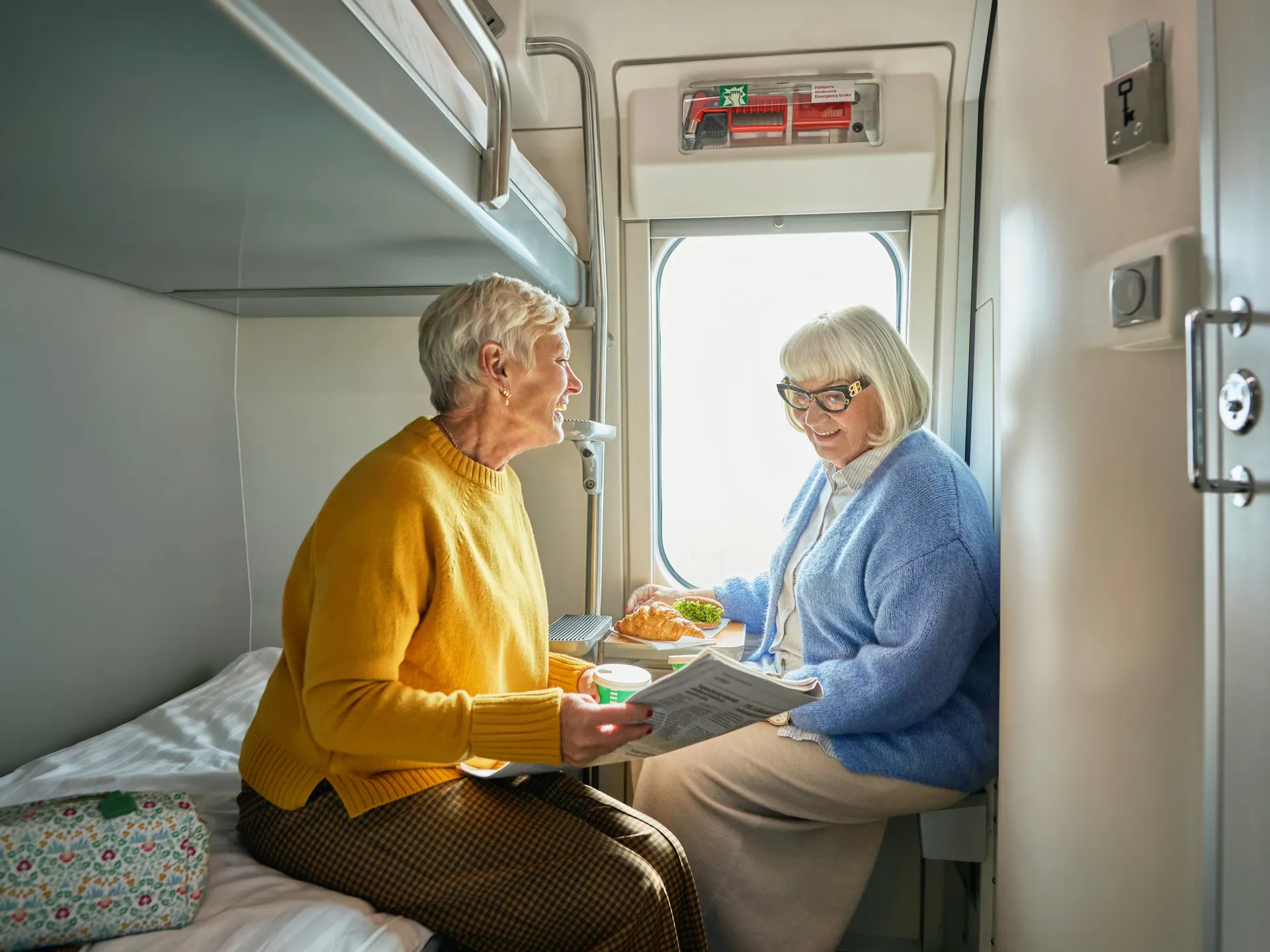We are piloting the use of body cameras in VR’s commuter traffic
Based on customer surveys, the feeling of safety in VR’s commuter train traffic is at a very good level and train travel is perceived as safe. According to the latest customer satisfaction survey carried out at the beginning of the year, for example, the feeling of safety on our commuter trains received a grade of 4.5 on a scale of 1–5. In order to prevent and resolve individual disruptions in VR’s commuter train traffic, conductors’ use of body cameras will be piloted during the spring.
A body camera is a camera attached to the conductor's work clothes, which the conductor can then switch on in a threatening situation. The purpose of body cameras is to prevent threats, violence and accidents on trains, improve the safety of passengers and train personnel and help to investigate possible incidents afterwards.
Camera surveillance in train traffic is not new in itself as there have been surveillance cameras in, among others, trains and stations for a long time. The purpose of camera surveillance is to strengthen the safety of passengers and personnel. The video and sound recorded by body cameras, like the recordings of other monitoring devices, contain personal data in the case that the persons recorded can be identified from them. Particular care is taken in the processing of recordings with regard to data protection legislation.
Good experiences from Europe
Conductors and ticket inspectors use body cameras in countries such as Sweden, Switzerland, Germany, the Netherlands and Belgium. Some of the personnel working on VR’s trains and stations in Sweden wear body cameras that record video and sound. The camera is not constantly on, rather, the employee turns the camera on themselves if they notice that a situation that threatens safety is emerging or has already begun. The same will also be done in the pilot starting on 17 February, which will be carried out in VR’s commuter traffic on lines D, H, M, R, T, G and Z.
"Train travel is very safe in Finland, but we have noticed that threats to public transport personnel are now becoming more common elsewhere in Europe. We want to prevent this development in Finland, and as one way to do this, we are piloting the use of body cameras," says Jaakko Rantala, VR’s City Traffic Safety Manager in Finland.
"In Sweden, our employees have found that wearing a camera increases the sense of safety and calms down some of the situations that could have become worse. More than half of employees using the cameras in Sweden have experienced an improved sense of safety, and almost every employee who has tried a body camera wanted to continue using it. With the help of body cameras, we can also ensure the legal protection of both the conductor and the passenger in the event of a threatening situation," Rantala says.
Data protection is ensured
Employees wearing a body camera will not have access to the recorded video. The highly encrypted video recordings can only be accessed by separately designated persons in VR’s security organisation, and they only process the recordings for justified reasons in order to investigate serious and threatening incidents.
Notice of the body camera is shown on the conductors’ work clothes. The five commuter traffic conductors participating in the pilot will wear a vest with their normal work clothes. The vest includes an info text stating that the conductor can record video and audio in their work. The use of body cameras is also described in VR’s data protection notice., Opens in a new tab
VR has assessed the use of camera surveillance based on applicable data protection legislation and privacy laws. In processing personal data, we comply with the EU General Data Protection Regulation (EU 2016/679) and other legislation related to the processing of personal data. Only specifically designated persons in charge of security have access to the recordings. The employee carrying the camera or third parties cannot access the recordings, which are encrypted. The camera’s memory is also strongly protected.


